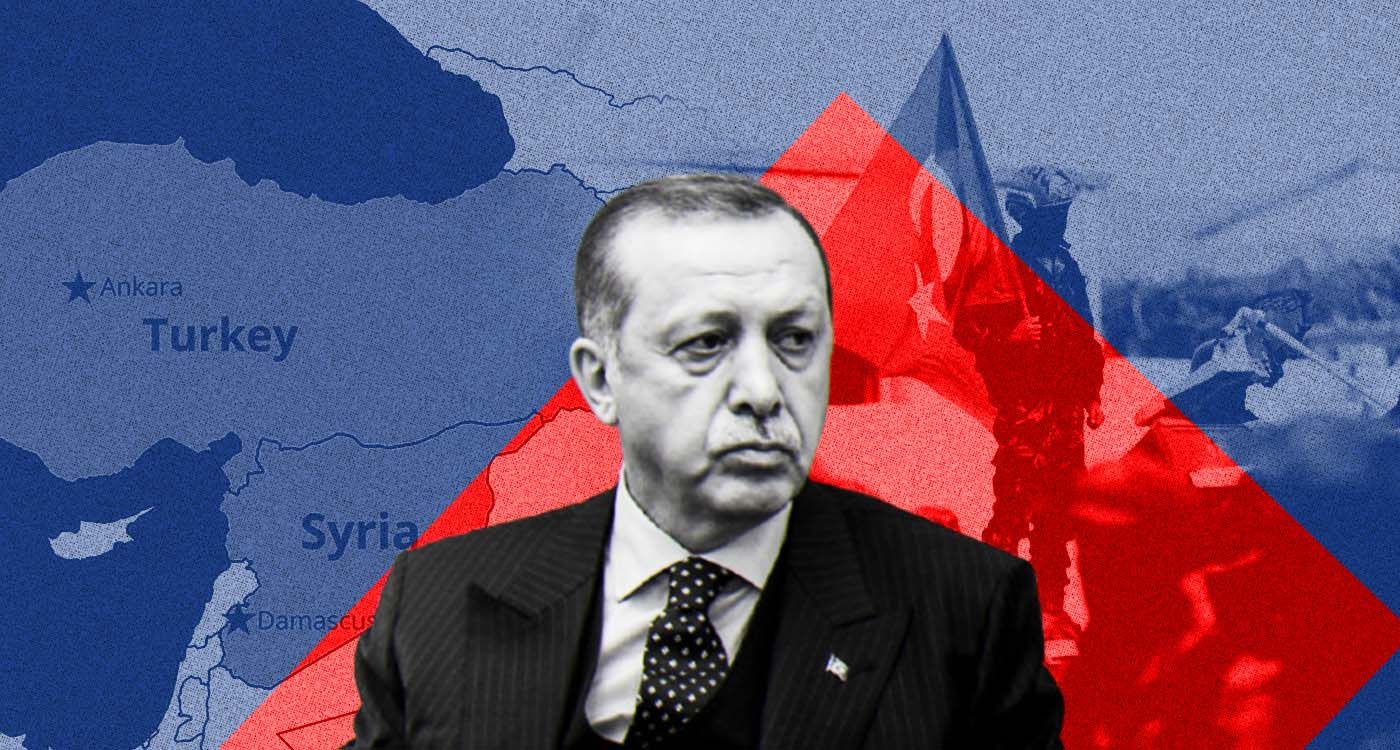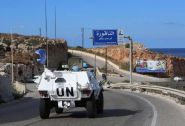
Power, capability and determination. These are the words that Turkish Foreign Minister Hakan Fidan used on Friday, January 10, as he once again warned the Syrian Democratic Forces (SDF)—a Kurdish-led coalition supported by the West—of military action if they did not hand over their weapons to the new regime in Damascus.
Only a month earlier, Turkish President Recep Tayyip Erdogan had declared in a televised address, “We can no longer allow Syria to be divided.” He further asserted that anyone threatening Syria “will find us standing against them, alongside the Syrian people.”
And for good reason: since the fall of Bashar al-Assad’s regime in December, Turkey has gained unprecedented freedom of maneuver across much of Syria. This newfound influence has further bolstered the success of Turkey’s involvement in the Syrian civil war—first through indirect support and later by deploying its own forces to the border regions from 2017 onward. That same year, Ankara formed the Syrian National Army (SNA), a coalition of rebel groups serving Turkey’s strategic interests in Syria.
Pragmatism
Turkey’s role in Syria extends well beyond its direct allies, encompassing indirect support for other actors, notably Hay’at Tahrir al-Sham (HTS), the Islamist group led by Ahmad al-Shareh, who has become the country’s new power broker.
“Turkey officially lists HTS as a terrorist organization,” explains Albert Kandemir, a doctoral researcher in international relations at Paris II - Panthéon-Assas University. “However, it’s essential to recognize that the Syrian National Army (SNA) has been highly porous to various jihadist factions that continue to fragment Syria,” he adds. This dynamic was further fueled by the fact that Idlib Province—HTS’s bastion until December 2024—also served as a stationing ground for Turkish forces.
“A pragmatic relationship has been formed, with both the Islamist group and Ankara identifying common enemies and goals,” explains Kandemir. He further notes, “Although Turkey has no direct ties with the group, it’s evident that Ankara discreetly operates behind the scenes with Syria’s new leadership and offers counsel to its leader, al-Joulani [War name of Ahmad al-Shareh], who has become the country’s new power broker”.
The New Syrian Godfather
This display of strength is further underscored by recent events. On Tuesday, Syria’s newly appointed Foreign Minister made his first official visit to Turkey. “It’s quite evident that Ankara is positioning itself as the godfather of post-Baathist Syria,” observes Kandemir, who believes Turkey is pursuing at least three key objectives.
At a broader level, Turkey seeks to stabilize its eastern neighborhood. “Turkey’s surrounding geography is structurally conflict-prone, so Ankara has a vested interest in working toward stability,” notes Kandemir, “while simultaneously achieving its own security objectives.”
Domestically, the focus is on facilitating the return of Syrian refugees. “There are currently between 3 and 4 million Syrians in Turkey, and their presence has become a key point of criticism for the opposition against the Justice and Development Party (AKP),” notes the researcher. This highlights how heavily the Syrian issue weighs on Turkey’s political landscape.
The Kurdish Issue
The third, and perhaps the most crucial objective for Turkey is to nip any ambitions the Syrian Democratic Forces (SDF) might have in the bud—specifically, their desire to establish an autonomous region near Turkey's eastern provinces, which are home to significant Kurdish populations. These provinces also harbor the famous Kurdistan Workers' Party (PKK).
The PKK, labeled a terrorist organization by Turkey, the United States and the European Union, has strong ties to its Syrian counterpart, the Democratic Union Party (PYD). The PYD’s military wing, the People's Defense Units (YPG), serves as the backbone of the SDF.
“It’s worth noting that Turkey has faced a similar situation before,” says Kandemir. “The 2003 US invasion of Iraq helped consolidate the Kurdistan Regional Government (KRG), an autonomous region along Turkey’s border,” he explains. Ankara has since adjusted to this reality, fostering strong relations with the KRG, whose forces regularly clash with the PKK.
However, “the situation in Syria is far more complex,” notes the researcher. “Many YPG fighters have ties to the PKK,” he continues, emphasizing that “unlike the KRG, the PKK openly challenges Turkey's territorial integrity.” Given this, a political resolution to the Kurdish issue in Syria seems highly unlikely, despite initial calls from the new Syrian government for a negotiated settlement.
On Wednesday, January 22, Syria’s Defense Minister raised the stakes, declaring that the new authorities would “use force” if negotiations to integrate the SDF into the regular army fail. The only significant hurdle to this outcome remains the US military presence alongside the Kurds, a situation that the incoming Trump administration may soon reconsider.
Sanctifying Turkish Influence
The risk of a renewed Syrian civil war remains tangible. “It is likely that ethnico-confessional dynamics will outweigh the ideal of national unity that the new Damascus regime claims to uphold,” observes Kandemir. In such a scenario, “Turkey will likely seek to leverage its influence, positioning itself as a mediator,” he suggests.
However, Ankara will face substantial competition. “The United States, Israel, and the Gulf countries will also mobilize their resources to defend their interests,” warns the researcher. Tel Aviv, in particular, has expressed alarm over Turkey's growing influence, as demonstrated by a recent security cabinet meeting focused on this issue.
This evolving situation could prompt Turkey to “sanctify its influence in the regions of Syria most accessible to it,” explains Kandemir. This area would likely cover the northern part of the country, including Aleppo, Syria’s second-largest city and its economic heart.
But most crucially, Turkey aims to secure its hegemony over Syria's Mediterranean coastline. “For years, Ankara has sought to expand its maritime borders, grounded in the doctrine of Mavi Vatan (Blue Homeland),” adds Kandemir.
The term refers to a doctrine developed in the 2000s, advocating for broader territorial claims within Turkey’s Exclusive Economic Zone (EEZ). These claims encompass several Greek islands off Turkey's coast and a significant portion of the EEZ of the Republic of Cyprus.
It is worth noting that the northern part of Cyprus is under the control of the Turkish Republic of Northern Cyprus (TRNC), a self-declared state recognized only by Ankara, which maintains military occupation there. “The consolidation of Turkish positions along Syria’s coastline would also help unlock the EEZs of the TRNC,” concludes the researcher.
Neo-Ottomanism
Turkey’s hegemonic ambitions have sparked criticism from regional observers, ranging from Tehran to Tel Aviv, who accuse Ankara of pursuing “Turkish imperialism” through its “neo-Ottoman” aspirations. This term refers to a doctrine aimed at reviving the historical influence of the Ottoman Empire, with Turkey using a proactive diplomatic approach, strengthening cultural, economic and religious ties, all framed within a nationalist and Islamic vision.
These accusations are further fueled by several statements from President Erdogan directed to his supporters, including his assertion that Turkey “cannot limit its horizons to its current borders," aiming to expand the country’s global influence.
“It is important to understand that the concept of ‘neo-Ottomanism’ primarily functions as a discursive and symbolic tool,” explains Kandemir. He adds that its purpose is more about “legitimizing foreign policy than actually aiming to revive the Ottoman Empire.” “From this perspective, the term is indeed fitting.”
“One of the key characteristics of the AKP (Erdogan's party, in power since 2002) has been its strategic economic and political engagement in the former Ottoman provinces, particularly in the Middle East, which are regarded as natural spheres of Turkish influence,” he adds.
In this context, Turkey’s strategy is less about territorial annexation and more about consolidating its regional hegemony— a term Kandemir deems more fitting than imperialism. “Indeed, while imperialism is defined by territorial expansion, hegemony involves a power imposing a regional or global order that serves its interests, which is exactly what Turkey is striving to accomplish.”




Comments